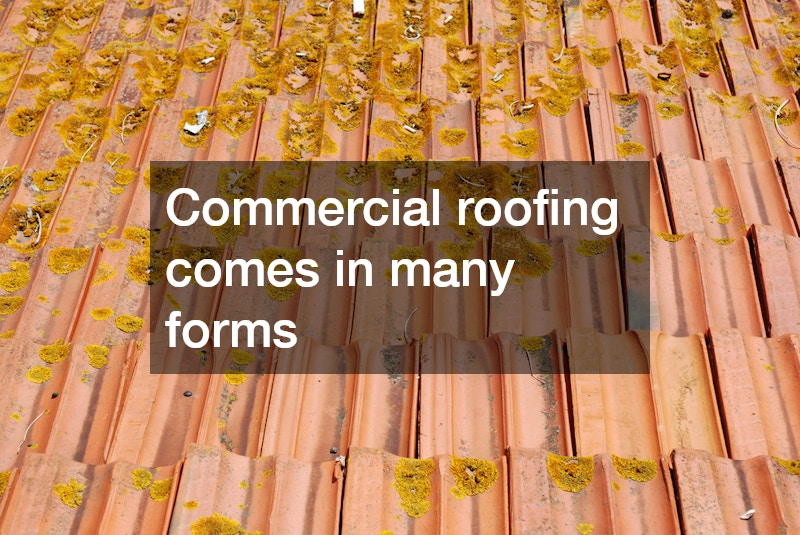Commercial roofing is a significant investment for any business. To ensure you select the right contractor for the job, it’s crucial to ask the right questions. This article covers the essential questions you should consider asking your local commercial roofing contractor to make an informed decision.
1. What Experience Do You Have with Commercial Roofing?
When selecting a commercial roofing contractor, their experience in the industry is a key indicator of their capability to handle your project. An experienced contractor has likely encountered a wide range of challenges and developed solutions that enhance their expertise.
By asking your contractor about their previous work, you can gauge their ability to deliver quality results tailored to your specific needs. A seasoned contractor will also be more adept at anticipating potential issues and advising on the best practices for your particular roofing requirements.
Understanding how long a contractor has been in the commercial roofing business can offer insights into their stability and reliability. A company with many years of service is likely to have a proven track record and a solid reputation in the community. Longevity often indicates that the contractor has successfully managed various projects, adapting to changes in technology and industry standards. A long-standing presence in the roofing industry could also suggest a high level of customer satisfaction and repeat business, which speaks volumes about the contractor’s credibility.
Commercial roofing comes in many forms, from flat roofs on warehouses to sloped roofs on office complexes, each requiring different skills and materials. By inquiring about the types of projects your contractor has previously completed, you can assess whether they have the specific experience necessary for your project. It’s important to choose a contractor who not only understands the technical aspects of your roofing system but also has relevant experience in executing similar projects successfully. Familiarity with diverse project types can also enable the contractor to provide innovative solutions and recommendations tailored to your business’s unique needs.
2. Are You Licensed and Insured?
Hiring a licensed and insured contractor is essential to protect your business from potential liabilities and ensure compliance with local regulations. A licensed contractor has met the necessary educational and professional requirements, demonstrating a commitment to maintaining high industry standards. During your initial discussions, confirm the contractor’s licensing status and verify it with the relevant local authorities. Understanding the importance of licensing can help you avoid unscrupulous contractors and make informed decisions based on verified credentials.
Licensing requirements for commercial roofing contractors vary by state and locality, encompassing a range of qualifications from technical knowledge to safety training. Being aware of these requirements not only aids in vetting contractors but also ensures that your project meets all legal regulations. A well-licensed contractor will have a deep understanding of the necessary permits and inspections needed to complete your project safely and legally. Additionally, a licensed contractor is more likely to stay abreast of evolving building codes and regulations, which is crucial for ensuring the structural integrity and safety of your commercial roof.
3. What Roofing Materials Do You Recommend and Why?
Choosing the right roofing materials is pivotal to the durability and functionality of your commercial roof. A knowledgeable contractor will offer recommendations based on your specific needs, climate considerations, and long-term cost-effectiveness. Understanding the contractor’s rationale for recommending certain materials can help you weigh the pros and cons and make an informed decision. Carefully evaluating the material options can also pave the way for optimal performance and energy efficiency, reducing your building’s operational costs over time.
Commercial roofing materials come in various forms, including TPO, EPDM, PVC, and metal, each offering distinct advantages. For instance, TPO is known for its energy efficiency and resistance to UV rays, making it a popular choice in warmer climates. EPDM is favored for its durability and ease of installation, while PVC provides excellent chemical resistance, ideal for roofs exposed to harsh industrial conditions. Discussing these options with your contractor will guide you in selecting materials that best align with your building’s requirements and environmental factors, ensuring a sustainable and cost-effective roofing system.
4. What is the Estimated Timeline for Completion?
Understanding the estimated timeline for your commercial roofing project is crucial for efficient business planning and minimizing disruptions. A detailed timeline provided by the contractor outlines the project’s scope and sets clear expectations, helping avoid misunderstandings and delays. During your discussions, inquire about the scheduled phases of the project and how each stage contributes to the overall timeline. Properly managing timeframes is instrumental in maintaining operational continuity and ensuring that your business can resume normal activities promptly.
Commercial roofing projects typically unfold in phases, including planning, material procurement, installation, and final inspections. A clear breakdown of these phases helps you track progress and address potential issues swiftly. For instance, the planning phase often involves site assessments and permit acquisition, while the installation phase requires coordination with various contractors and adherence to strict safety protocols. By understanding these phases, you can anticipate resource allocation and prepare your business operations accordingly, ensuring minimal disruptions throughout the roofing process.
Choosing the right commercial roofing contractor is critical to the success and longevity of your investment. By asking these questions, you can gain valuable insights into your contractor’s qualifications, their approach to your roofing needs, and the expected outcomes. Make sure to seek detailed responses and perform due diligence to ensure the best outcomes for your project.




